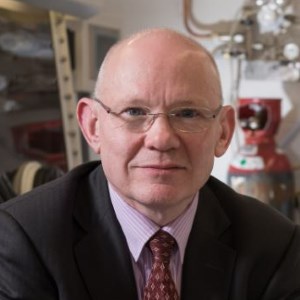Links to external sources may no longer work as intended. The content may not represent the latest thinking in this area or the Society’s current position on the topic.
Sci-Fi: bridging climate science and green finance

This Royal Society meeting explored climate science and the technologies that show genuine promise towards net zero emissions, as well as barriers to the flow of capital and solutions to funding such technologies.
A report summarising the meeting is available online (PDF).
Background
Achieving a net zero carbon society that is both resilient to climate change and inclusive requires the development and widespread deployment of both disruptive and existing technologies, supported by public and private funding. Responding to climate change has historically been seen as the realm of government policy, however, there is rising expectation that the financial sector should contribute to managing the risks associated with climate change. In June 2019, at least $30.7 trillion of funds were held in sustainable or green investments, an increase of 34% from 2016 according to a report by the Global Sustainable Investment Alliance. However, closer integration is needed between the physical and social sciences, financial professionals and institutions, innovative start-ups and global industry to support a low-carbon future.
This Transforming our future meeting was held by the Royal Society in partnership with the Green Finance Institute. This unique interaction between science and finance brought together leading experts from across industry, government and the wider scientific and financial communities. Speakers explored recent developments in low carbon technologies across sectors which have been the target for ‘green finance’: hydrogen and ammonia, heating and cooling, batteries and energy storage, nuclear energy and digital. The meeting also explored opportunities and challenges to commercialising these technologies and potential solutions to channel the world’s finance into their widespread implementation. Speakers discussed the measurement of risk of new scientific technologies for the financial community and how to mitigate this.
In dedication
During the planning of this event, Sir Roger Gifford, a key member of the organising committee, sadly passed away. His family were keen for the meeting to go ahead, which was held as a dedication to him. Sir Roger leaves a strong legacy in this important area of climate-linked financial services, and contributed significantly in the development phase and to shaping the agenda and content of this important event. Dame Sue Ion DBE FREng FRS and Professor Peter Bruce FRS led the organising committee in his stead.
About the conference series
The conference is part of the Royal Society's Transforming our future conference series, overseen by the Science, Industry and Translation Committee and generously supported by AstraZeneca. These meetings are unique, high-level events that address the scientific and technical challenges of the next decade. Each conference features cutting edge science from industry and academia and brings together leading experts from the scientific community, including regulatory, charity and funding bodies.
Organisers
Schedule
Welcome remarks
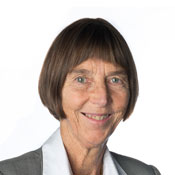
Dame Sue Ion GBE FREng FRS

Dame Sue Ion GBE FREng FRSDame Sue Ion GBE FRS FREng is Hon President of the National Skills Academy for Nuclear. She was previously Chairman of the UK Nuclear Innovation Research Advisory Board (NIRAB). She represents the UK on a number of international review and oversight committees for the nuclear sector including the Euratom Science and Technology Committee which she chaired until late 2018. She was the only non-US member of the US Department of Energy’s Nuclear Energy Advisory Committee on which she has served from 2005-2020.She currently serves as a member of the Office of Nuclear Regulation Independent Advisory Panel. Sue spent 27 years with British Nuclear Fuels Ltd (BNFL) rising to the position of Chief Technology Officer in 1992, a post she held until 2006 when she assumed a number of mainly voluntary roles in Science and Engineering, including membership of the UK Council for Science and Technology and the Engineering and Physical Sciences Research Council (EPSRC). She was Vice President of the Royal Academy of Engineering 2002-2008 and chaired its MacRobert Committee 2013-2019. Sue was Deputy Chair of the Board of the University of Manchester until September 2018 and currently serves on the Board of the University of Central Lancashire. Her core expertise is in materials science and engineering associated with the nuclear sector. Sue is a member of the Chief Scientific Advisor for Wales’s Science and Innovation Advisory Council. She has been a Visiting Professor in the Department of Materials at Imperial College since 2006, holds an Honorary Professorship at the University of Manchester and is now Chair of the Royal Society Science, Industry and Translation Committee. |
Chair

Dame Sue Ion GBE FREng FRS

Dame Sue Ion GBE FREng FRS
Dame Sue Ion GBE FRS FREng is Hon President of the National Skills Academy for Nuclear. She was previously Chairman of the UK Nuclear Innovation Research Advisory Board (NIRAB). She represents the UK on a number of international review and oversight committees for the nuclear sector including the Euratom Science and Technology Committee which she chaired until late 2018. She was the only non-US member of the US Department of Energy’s Nuclear Energy Advisory Committee on which she has served from 2005-2020.She currently serves as a member of the Office of Nuclear Regulation Independent Advisory Panel.
Sue spent 27 years with British Nuclear Fuels Ltd (BNFL) rising to the position of Chief Technology Officer in 1992, a post she held until 2006 when she assumed a number of mainly voluntary roles in Science and Engineering, including membership of the UK Council for Science and Technology and the Engineering and Physical Sciences Research Council (EPSRC). She was Vice President of the Royal Academy of Engineering 2002-2008 and chaired its MacRobert Committee 2013-2019. Sue was Deputy Chair of the Board of the University of Manchester until September 2018 and currently serves on the Board of the University of Central Lancashire.
Her core expertise is in materials science and engineering associated with the nuclear sector. Sue is a member of the Chief Scientific Advisor for Wales’s Science and Innovation Advisory Council. She has been a Visiting Professor in the Department of Materials at Imperial College since 2006, holds an Honorary Professorship at the University of Manchester and is now Chair of the Royal Society Science, Industry and Translation Committee.
| 12:05 - 12:25 |
Science and the City: climate, capital and collaboration
Green finance, often described as the application of climate and environmental science to financial decision making, is one of the most exciting and fast-growing areas within financial services. The proliferation of Net Zero aligned commitments from both public and private financial institutions attests to the growing acceptance that climate risk poses financial risk and the need to reallocate capital towards the zero carbon solutions over the coming decade. Our Net Zero emissions future is dependent on investing trillions not only to scale existing zero carbon solutions but also to finance emerging technologies and transform our existing carbon intensive industries. Our challenge is to ensure the real economy transformation required is based on rigorous scientific guidance and that capital flows are aligned with these sectoral transition pathways. No single type of financial institution, be that public or private, can meet that challenge, which points to an unprecedented era of collaboration between science, industry, policy and finance. 
Dr Rhian-Mari Thomas OBE, Chief Executive, The Green Finance Institute

Dr Rhian-Mari Thomas OBE, Chief Executive, The Green Finance InstituteDr Rhian-Mari Thomas is CEO of the Green Finance Institute, backed by the UK Government and City of London Corporation. Rhian spent 20 years in investment and corporate banking and was awarded an OBE in 2019 for services to green banking. She is an Emeritus Member of the TCFD, currently co-chair of the Informal Working Group for the Taskforce on Nature-related Financial Disclosures and Advisory Board member for UCL Bartlett School for Environment, Energy and Resources and UK Government’s Climate Finance Accelerator. She is also a member of the UK Government’s Financial Services Trade Advisory Group, Net Zero Technology and Innovation Advisory Group. Rhian was a commissioner on the Zero Carbon Commission and previously sat on the UK Government Green Finance Taskforce, the Banking Environment Initiative’s Fintech Taskforce and the steering group for the UN Environment Programme Principles for Responsible Banking. Rhian holds a PhD in Physics from Trinity College Dublin. |
|---|---|
| 12:25 - 12:45 |
A CERN for climate change
The science of climate change is not done and dusted. On the global scale we do not understand well how clouds will respond to increasing CO2 concentrations - and yet this will determine how much the planet will warm. On more regional scales we have a poor understanding of the changing nature of extreme events, or of the possibility of passing irreversible "tipping points". I argue that to address these issues, and their impacts, we should be investing in an international institute for climate prediction - a sort of "CERN for climate change". At its heart would be exascale computing infrastructure, completely dedicated to climate-change research. 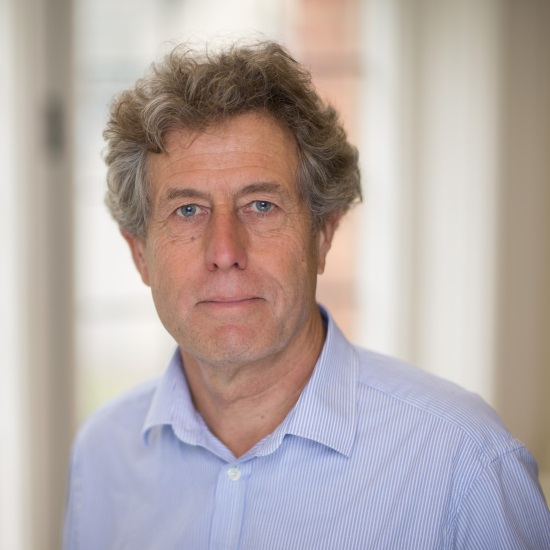
Professor Tim Palmer CBE FRS, University of Oxford, UK

Professor Tim Palmer CBE FRS, University of Oxford, UKTim Palmer is a Royal Society Research Professor in the Department of Physics at the University of Oxford. Prior to that he was Head of Division at the European Centre for Medium-Range Weather Forecasts where he pioneered the development of ensemble prediction techniques, allowing weather and climate predictions to be expressed in flow-dependent probabilistic terms. Such developments have included the reformulation of sub-grid parametrisations as stochastic rather than deterministic schemes. Over the last 10 years, Tim has been vocal in advocating for much greater dedicated computing capability for climate prediction than is currently available. He has won the top awards of the European and Meteorological Societies, the Dirac Gold Medal of the Institute of Physics, and is a Foreign or Honorary Member of a number of learned societies around the world. |
Chair
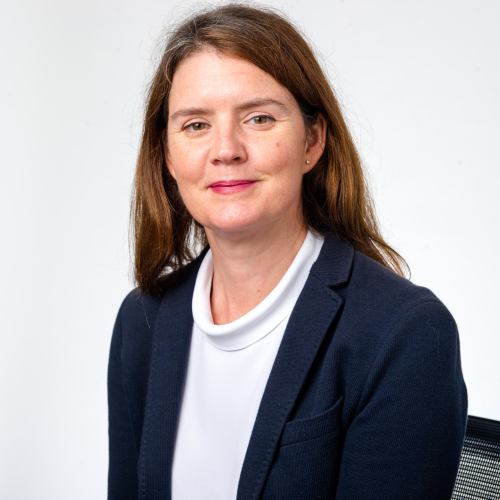
Ingrid Holmes, Executive Director, The Green Finance Institute

Ingrid Holmes, Executive Director, The Green Finance Institute
Ingrid has over 15 years of experience working on environmental policy and sustainable finance. She was a Member of the European Commission's High Level Expert Group on Sustainable Finance and ran the Secretariat for the Green Finance Taskforce, which led to the establishment of the Green Finance Institute. Ingrid has a background working in financial services (Federated Hermes and Climate Change Capital), NGOs (E3G), Government (DEFRA) and the UK Parliament. Her abiding passion is her focus on scaling investment into climate change solutions to address the climate crisis. Ingrid has a BSc in Biological Sciences (Hons Zoology) from the University of Edinburgh and an MSc in Environmental Technology from Imperial College London.
| 13:00 - 13:20 |
The role of hydrogen and its derivates in the achievement of the climate targets
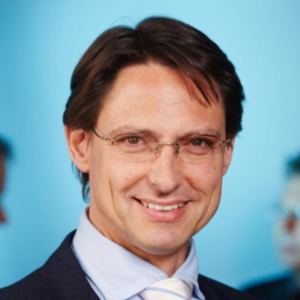
Professor Christopher Hebling, Director, Energy Technologies and Systems; Director, Hydrogen Technologies of Fraunhofer ISE

Professor Christopher Hebling, Director, Energy Technologies and Systems; Director, Hydrogen Technologies of Fraunhofer ISEProfessor Christopher Hebling is the Director of the Division ‘Hydrogen Technologies’ and co-director of the Division ‘Energy Technologies and Systems’ at the Fraunhofer Institute for Solar Energy System, ISE. He received his degree in physics in 1991 and received his doctoral degree, also in physics in 1998. In 2019 Christopher Hebling was awarded an honorary professorship in Chemical Engineering at the University of Cape Town. Christopher Hebling is vice president and member of the executive committee of the German Hydrogen and Fuel Cell Association (DWV), holds a seat on the German government's expert committee "Transformation Fund Automotive Industry" for the Ministry of Transport (BMVI), was appointed to the CEO Roundtable "Clean Hydrogen in Industrial Applications" of the "European Clean Hydrogen Alliance" of the EU Commission. He also represents Germany as an expert on the Executive Committee of the Technology Collaboration Program for Research and Development on the Production and Utilization of Hydrogen of the International Energy Agency IEA and is spokesperson for the Fraunhofer Hydrogen Network and the Fraunhofer Strategic Research Field (FSF) Hydrogen, which comprises 32 Fraunhofer Institutes. |
|---|---|
| 13:20 - 13:40 |
Balancing risk and reward in the Faraday Institution’s energy-storage research portfolio
The Faraday Institution represents a bold approach toward application-inspired energy storage research and early-stage commercialisation. The combined efforts of its 450-strong research community are directed toward technical targets set by industry in areas that show promise in providing tangible benefits to the UK battery and transport sectors. Research breakthroughs, however, are challenging to anticipate, the timescales involved between lab-based breakthrough and deployment in a commercial product are often long, and development cycles rarely track product roadmaps. Professor Pam Thomas will discuss the Faraday Institution’s approach to a balanced research portfolio and the FI’s analytical methodology – unique among research organisations – used to assess early-stage commercialisation potential for each of its 10 major battery research projects. This assessment facilitates the development of a bespoke approach to commercialisation tailored to each project, which enables the organisation to prioritise research and commercialisation resources, back likely "winners" and convene consortia that are investment ready. 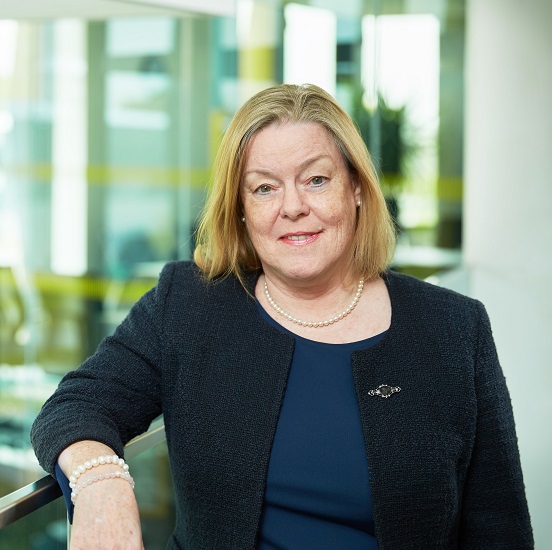
Professor Pam Thomas, CEO, Faraday Institution

Professor Pam Thomas, CEO, Faraday InstitutionProfessor Pam Thomas is the Chief Executive Officer of the Faraday Institution, the UK’s flagship energy storage research organisation. Launched in 2018, its mission-inspired programme is delivered by a consortium of 21 universities and 50+ businesses and involves 450 researchers. She is also Pro Vice Chancellor for Research at the University of Warwick, where she has responsibility for academic leadership of the research portfolio and strategy across the university. As a scientific leader, she is a member of the STFC Council, has served as a trustee of both the Alan Turing Institute (2016-2018) and the Faraday Institution (2018-2020) and is a member of the executive management board of the Midlands Innovation collaboration of universities. She holds a DPhil in physics from the University of Oxford. In her personal research, Professor Thomas leads the Ferroelectric Crystallography Group in the Department of Physics at Warwick. |
| 13:40 - 14:00 |
Heating and cooling
Domestic and commercial heating gives rise to about 20% of the UK's emissions. However, there is a lot of debate, and hype, on what the right zero carbon heating technology should be. Rather than picking winners and losers, this talk will consider the problem from the perspective of three guiding principles. These three principles act as a litmus test to evaluate in what contexts different solutions could be successful, and hence guide the understanding of the potential market size. The talk shows exemplars of how each principle can be applied to a diverse set of technology solutions. 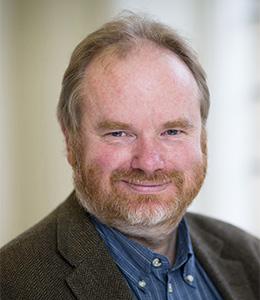
Professor Malcolm McCulloch, Associate Professor and Group Leader, University of Oxford

Professor Malcolm McCulloch, Associate Professor and Group Leader, University of OxfordClimate change and social inequity are the big challenges facing our civilisation on its path to a sustainable future. The group's focus is to develop, and commercialise, sustainable energy technologies as well as to develop the next generation of impactful researchers. Malcolm has two active themes of research: 1) energy access for the developing world and 2) integrating renewable generation into existing grids. A key challenge is to develop new clean technologies to meet the need of providing sustainable electricity to the 1.3 billion people without access to electricity. This provides a triple benefit; the end users benefit from the provision of the service, the impact on climate change is minimal and many of the core ideas are relevant to the rest of the world. A second challenge is to de-carbonise the existing energy sector. Electricity is becoming the energy vector of choice, implying that the Power sector, Mobility sector and Heating sector are becoming more intertwined. This provides opportunities for synergies that have not yet been developed. Malcolm's approach is to deeply understand the end users current and future needs and capabilities and to develop an energy system that grows with the end-user. Specific projects include the exploiting the spatio-temporal nature grid, the weak hybrid grid, the provision of mobility and energy services from electric vehicles, and the use of effective thermal energy stores. Developing the next generation of superb researchers and practitioners in sustainable energy is important to ensure a growing number of high passionate people continue to ensure we accelerate to a globally sustainable future. Malcolm actively develops all those who work with him to ensure that they reach their potential, regardless of their gender or where they were born. |
| 14:00 - 14:20 |
Nuclear energy = low carbon energy. Why aren’t we seeing more of it? Lost opportunity or new dawn?
As we strive for the very challenging target of net zero by 2050 why is it that nuclear energy which is sustainable, green, low carbon and has saved more emissions than any other source is not being progressed more vigorously? Nuclear has the lowest lifecycle carbon alongside wind. Solar is four times higher, gas is 40 times higher. However, nuclear energy's progress is negatively impacted by historic high costs and reactor systems designed decades ago and the fact it is not normally viewed with the same positivity as renewable energy sources. The talk will discuss these issues and show how science and engineering has led to major progress on all fronts in recent times. It will focus particularly on two UK systems, one based on the traditional water cooled technology familiar globally, the other on high temperature gas cooled technology which has so much potential for the dual mission of both electricity and heat production and its potential role in the production of green hydrogen. 
Dame Sue Ion GBE FREng FRS

Dame Sue Ion GBE FREng FRSDame Sue Ion GBE FRS FREng is Hon President of the National Skills Academy for Nuclear. She was previously Chairman of the UK Nuclear Innovation Research Advisory Board (NIRAB). She represents the UK on a number of international review and oversight committees for the nuclear sector including the Euratom Science and Technology Committee which she chaired until late 2018. She was the only non-US member of the US Department of Energy’s Nuclear Energy Advisory Committee on which she has served from 2005-2020.She currently serves as a member of the Office of Nuclear Regulation Independent Advisory Panel. Sue spent 27 years with British Nuclear Fuels Ltd (BNFL) rising to the position of Chief Technology Officer in 1992, a post she held until 2006 when she assumed a number of mainly voluntary roles in Science and Engineering, including membership of the UK Council for Science and Technology and the Engineering and Physical Sciences Research Council (EPSRC). She was Vice President of the Royal Academy of Engineering 2002-2008 and chaired its MacRobert Committee 2013-2019. Sue was Deputy Chair of the Board of the University of Manchester until September 2018 and currently serves on the Board of the University of Central Lancashire. Her core expertise is in materials science and engineering associated with the nuclear sector. Sue is a member of the Chief Scientific Advisor for Wales’s Science and Innovation Advisory Council. She has been a Visiting Professor in the Department of Materials at Imperial College since 2006, holds an Honorary Professorship at the University of Manchester and is now Chair of the Royal Society Science, Industry and Translation Committee. |
| 14:20 - 14:40 |
The digital energy system of the future
Society is becoming increasingly dependent on 'digital', leading to implications for many facets of our day to day living. The digital sector continues to experience a long period of continuous change and many innovations have enabled and supported complete transformations of the infrastructure, operations, and use of digital systems. Alongside this, the energy sector is entering a period of profound change being driven by several factors, including the absolute need to decarbonise, the ageing state of networks and increase in demand. Digitalisation is seen as an essential enabler of this energy transformation, with its application being considered key in a broad spectrum of situations from production to distribution and consumption. In this session, Nick will explore what the future energy system could look like, why digitalisation is important and what it will enable. 
Nick Winser CBE FREng, Chair, Energy Systems Catapult

Nick Winser CBE FREng, Chair, Energy Systems CatapultEnergy Systems Catapult Chair since 2015, Nick Winser was appointed Chair of the Advisory Board for the Energy Revolution ISCF programme in 2018 and served on the Advisory Panel for the Cost of Energy Review in 2017. He is also a member of a COP26 Advisory Group and the Net Zero Expert Group which advises the Secretary of State. These appointments followed a 30-year career in the energy sector which included UK and European CEO of the Board of the National Grid, President of the European Network of Transmission System Operators for Electricity (2013-2015) and CIGRE UK Chair. A member of the IET, serving as its President in 2017/18, Nick maintains a keen interest in the organisation’s work and sits on the Nominations & Succession Committee. Chair of the MS Society and a former member of the Board of the Kier Group, Nick also has a professional interest in both the charity and construction sector. |
Chair

Dr Rhian-Mari Thomas OBE, Chief Executive, The Green Finance Institute

Dr Rhian-Mari Thomas OBE, Chief Executive, The Green Finance Institute
Dr Rhian-Mari Thomas is CEO of the Green Finance Institute, backed by the UK Government and City of London Corporation.
Rhian spent 20 years in investment and corporate banking and was awarded an OBE in 2019 for services to green banking. She is an Emeritus Member of the TCFD, currently co-chair of the Informal Working Group for the Taskforce on Nature-related Financial Disclosures and Advisory Board member for UCL Bartlett School for Environment, Energy and Resources and UK Government’s Climate Finance Accelerator. She is also a member of the UK Government’s Financial Services Trade Advisory Group, Net Zero Technology and Innovation Advisory Group.
Rhian was a commissioner on the Zero Carbon Commission and previously sat on the UK Government Green Finance Taskforce, the Banking Environment Initiative’s Fintech Taskforce and the steering group for the UN Environment Programme Principles for Responsible Banking.
Rhian holds a PhD in Physics from Trinity College Dublin.
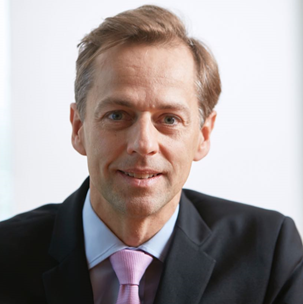
Huw van Steenis, Senior Advisor to the CEO, UBS

Huw van Steenis, Senior Advisor to the CEO, UBSHuw van Steenis is Senior Advisor to the Chief Executive of UBS. He acts as a senior adviser to both the firm and its clients in analysing financial, market and sustainability trends to help guide investment and strategic decisions. He has served as Chair of the firm’s Sustainable Finance Steering Committee. Prior to this, Huw was Senior Advisor to Mark Carney on climate finance and fintech, when he was Governor at the Bank of England, leading a review on the future of finance. The van Steenis Report led to a five pronged plan for the central bank announced by the Governor June 2019 including climate stress tests for financial institutions. Huw has been recognised an influential investment strategist. Huw worked at Morgan Stanley for 14 years spending much of his time there as Global Head Banks and Diversified Financials research. During this time he and his teams won numerous awards including being voted number one in investor surveys 12 times and twice Starmine’s stock picker of the year for financial services. From 2016-2018 he served as Global Head of Strategy at Schroders on their Group Management Committee and Capital Committee. He frequently features in the media and writes regularly for the Financial Times and other publications on finance, sustainable investing and central banking. He is co-Chair of the World Economic Forum’s Global Future Council on Finance, member of the Oxford University Endowment Investment Committee (chairing the ESG sub-committee) and the initial steering committee for the Taskforce for Scaling Voluntary Carbon Markets. He is also a Trustee of English National Opera. He was educated at Oxford and INSEAD. 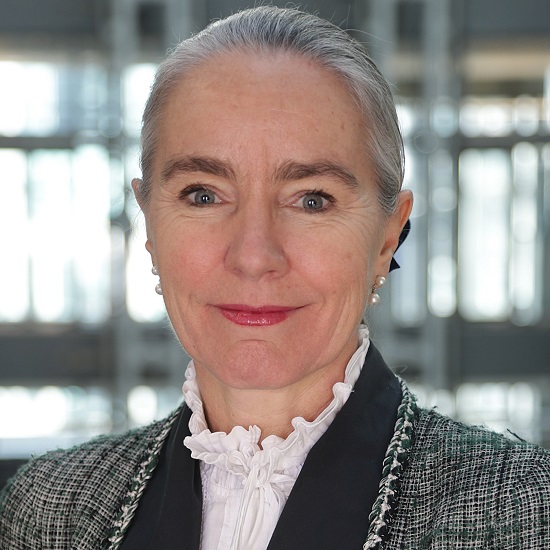
Caroline Haas, Head of Sustainable Finance, NatWest

Caroline Haas, Head of Sustainable Finance, NatWestCaroline joined NatWest Markets in February 2019 and serves as Managing Director and Head of Climate and ESG Capital Markets. She works closely with origination teams – both in public markets and private finance arena – focusing on a holistic approach to sustainability, working with clients across products and markets, and providing ESG rating, regulatory and disclosure insights. Caroline also engages with institutional investors globally to understand their ESG objectives and develop new products to meet their needs. Caroline is actively involved in NatWest Group’s and NatWest Markets’ climate change programmes and working groups. She represents NatWest on the GFMA Board, LSE’s Sustainable Bond Market Advisory Council, AFME’s Sustainable Finance working group and ICMA’s Transition Bond working group. Participation in these industry groups enables Caroline to help shape sustainable finance as it evolves. Caroline graduated from Queen’s University, Kingston, Canada with a Bachelor of Science in Chemistry followed by an MBA from European University. Prior to joining NatWest Markets, Caroline spent 10 years working for a London children’s charity providing extra-curricular and academic support as Development Director and Board Trustee. Caroline had ten years of investment banking experience advising financial institutions across Europe on capital products at Goldman Sachs, Deutsche Bank and Credit Suisse. In addition, Caroline is a member of Synchronicity Earth’s advisory council, a UK biodiversity charity. 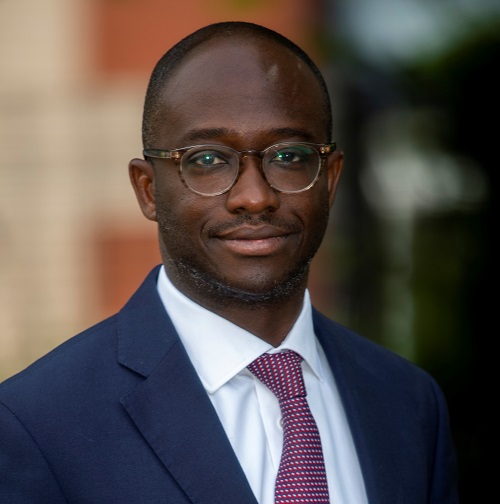
Sam Gyimah, Non-Executive Director, Goldman Sachs and former Science and Innovation Minister

Sam Gyimah, Non-Executive Director, Goldman Sachs and former Science and Innovation MinisterSam Gyimah is a non-executive director and advisor to Goldman Sachs International and Goldman Sachs International Bank. Sam was formerly the Member of Parliament for East Surrey from 2010 through to 2019. Sam served in four ministerial positions; including as joint Minister for Innovation, Technology, Research and Higher Education in 2018, with strategic responsibility for an £8 billion R&D budget, and 164 higher education institutions. Sam was Justice Minister between 2016 and 2018, he has also served as a Minister in the Cabinet Office and the Education Department, and as Parliamentary Private Secretary to Prime Minister David Cameron. Before entering politics, Sam was an angel investor in and developed a number of early-stage businesses. Alongside his non-executive roles, Sam is an Advisor on COP26, particularly leveraging finance to drive innovation to accelerate the climate transition. He serves on the Board of Oxford University Innovation; is a founding Advisory Board member of Blume Equity; and until recently was senior advisor to Pension Bee. Sam serves on the Global Leadership Council of Said Business School, and the Advisory Council of the Impact Investing Institute. Sam completed the Risk Management in Banking Programme at Insead Business School in June 2021. He earned an MA in Philosophy, Politics and Economics from the University of Oxford in 1999. |
| 15:45 - 15:50 |
Closing remarks

Dame Sue Ion GBE FREng FRS

Dame Sue Ion GBE FREng FRSDame Sue Ion GBE FRS FREng is Hon President of the National Skills Academy for Nuclear. She was previously Chairman of the UK Nuclear Innovation Research Advisory Board (NIRAB). She represents the UK on a number of international review and oversight committees for the nuclear sector including the Euratom Science and Technology Committee which she chaired until late 2018. She was the only non-US member of the US Department of Energy’s Nuclear Energy Advisory Committee on which she has served from 2005-2020.She currently serves as a member of the Office of Nuclear Regulation Independent Advisory Panel. Sue spent 27 years with British Nuclear Fuels Ltd (BNFL) rising to the position of Chief Technology Officer in 1992, a post she held until 2006 when she assumed a number of mainly voluntary roles in Science and Engineering, including membership of the UK Council for Science and Technology and the Engineering and Physical Sciences Research Council (EPSRC). She was Vice President of the Royal Academy of Engineering 2002-2008 and chaired its MacRobert Committee 2013-2019. Sue was Deputy Chair of the Board of the University of Manchester until September 2018 and currently serves on the Board of the University of Central Lancashire. Her core expertise is in materials science and engineering associated with the nuclear sector. Sue is a member of the Chief Scientific Advisor for Wales’s Science and Innovation Advisory Council. She has been a Visiting Professor in the Department of Materials at Imperial College since 2006, holds an Honorary Professorship at the University of Manchester and is now Chair of the Royal Society Science, Industry and Translation Committee. |
|---|

